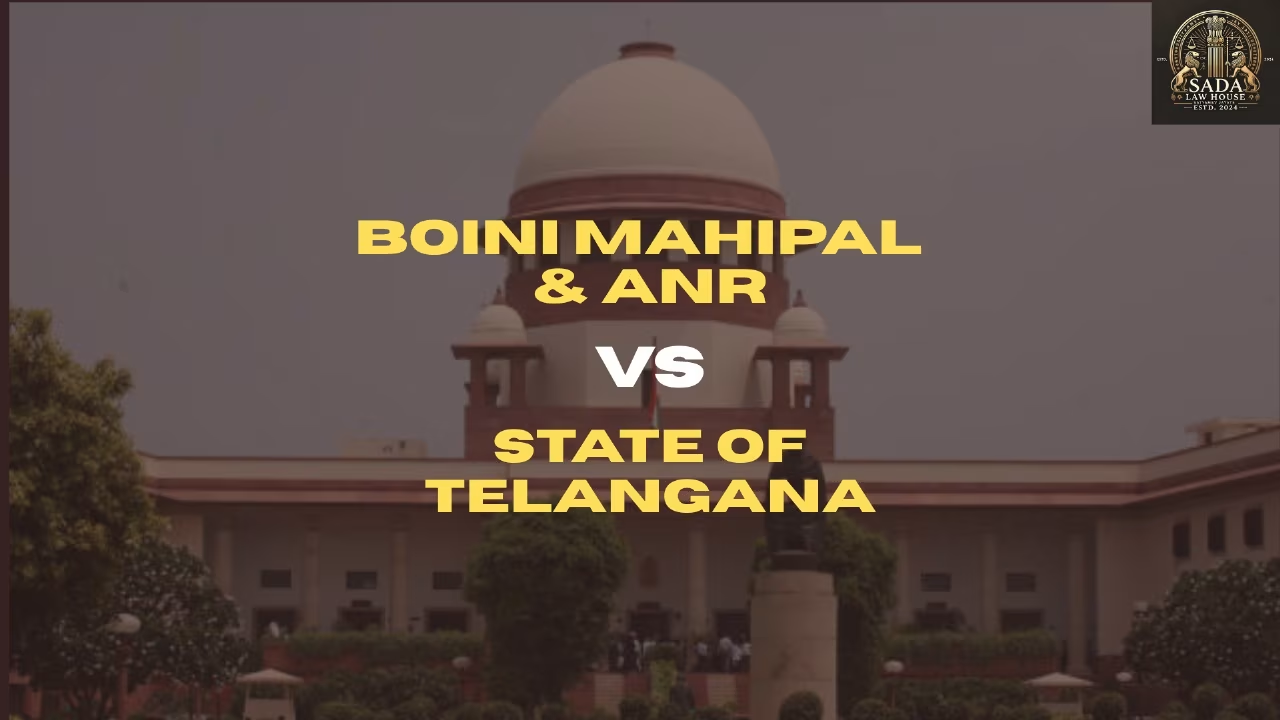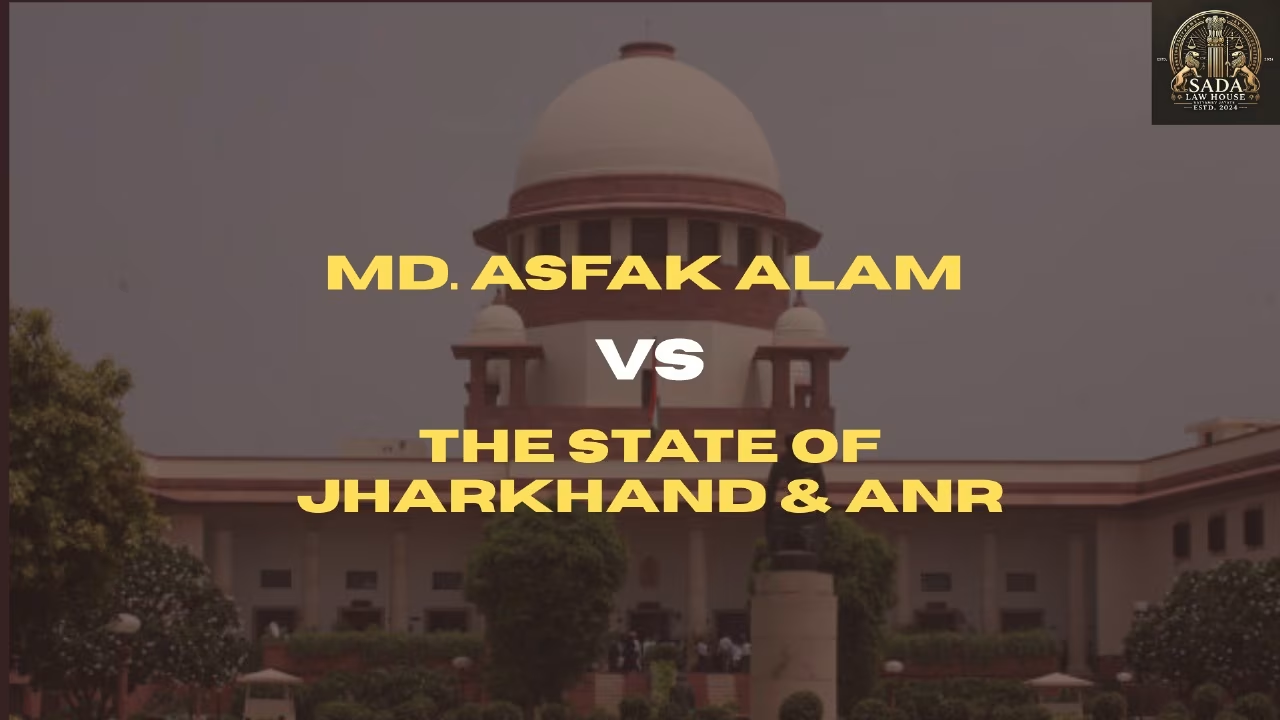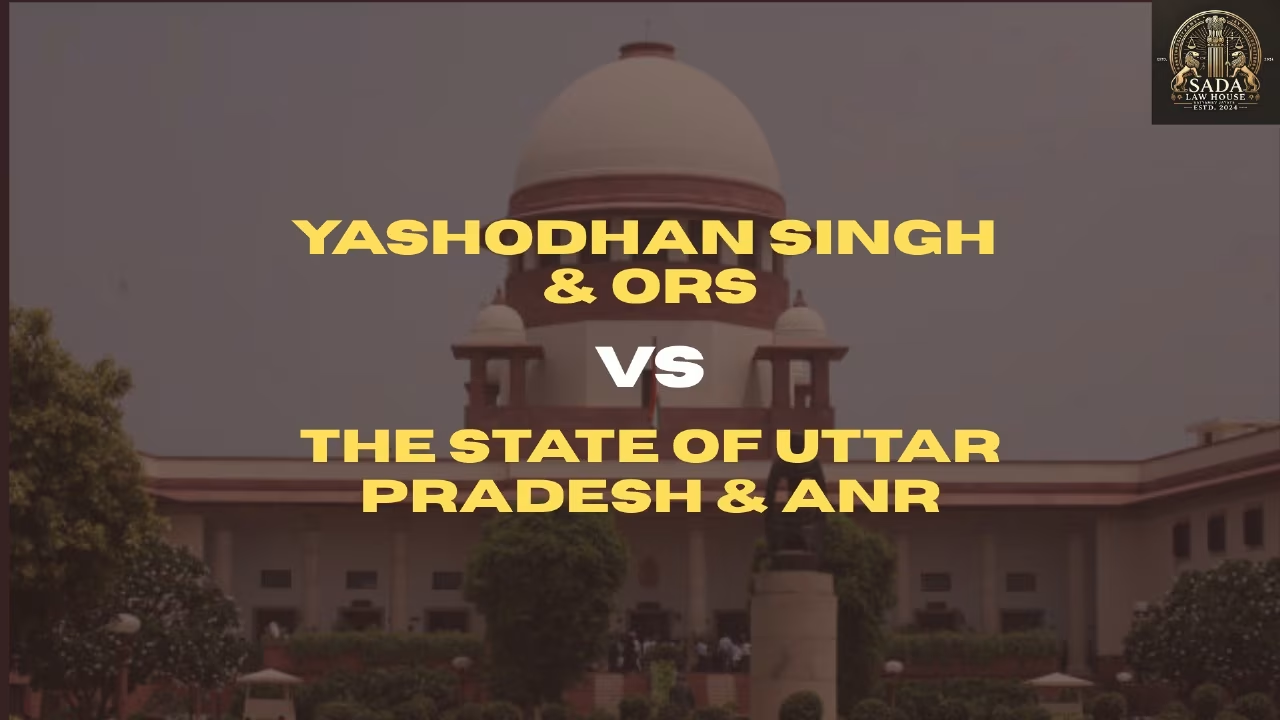Bail Granted in Boini Mahipal v. State of Telangana: Supreme Court on Prolonged Undertrial Detention and Article 21
- REHA BHARGAV
- Sep 23, 2025

The Supreme Court of India in Boini Mahipal v. State of Telangana (July 19, 2023) granted bail citing prolonged undertrial detention and violation of the right to a speedy trial under Article 21.
Introduction
The case of Boini Mahipal & Another v. State of Telangana, decided by the Supreme Court of India on July 19, 2023, addressed a crucial issue of granting bail due to prolonged pre-trial detention.
The petitioners, accused under Section 302 of the Indian Penal Code (IPC), had been in judicial custody for over five years without conclusion of trial. They argued that such prolonged incarceration violated their fundamental right to life and personal liberty under Article 21 of the Constitution.
The bench, comprising Justice S. Ravindra Bhat and Justice Aravind Kumar, balanced the seriousness of the charge with the constitutional guarantee of a speedy trial, ultimately granting bail.
Facts of the Case
Petitioners Boini Mahipal and another were accused of murder under Section 302 IPC in Telangana.
They were arrested and kept in judicial custody for more than five years as undertrial prisoners.
The prosecution alleged a pre-planned murder conspiracy, citing witness testimonies and forensic evidence.
Despite this, the trial remained incomplete, with many witnesses yet to be examined.
Their bail pleas were repeatedly rejected by the trial court and the High Court.
Aggrieved, they approached the Supreme Court, citing a violation of Article 21.
Issue Before the Court
Whether prolonged pre-trial detention of over five years in a murder case justified the grant of bail under Article 21 of the Constitution, despite the gravity of charges under Section 302 IPC?
Petitioners’ Arguments
The petitioners argued:
Continued incarceration for over five years violated their right to life and personal liberty under Article 21.
The trial delays were not attributable to them but due to systemic issues.
Many witnesses remained unexamined, with no foreseeable conclusion of trial.
Repeated bail rejections ignored their prolonged undertrial status.
Cited precedents where bail was granted due to long undertrial detention.
Emphasized that “bail is the rule, jail is the exception” when detention becomes punitive.
Respondent’s Arguments
The State of Telangana opposed bail, arguing:
The accused were involved in a heinous and pre-planned murder.
Bail could risk witness intimidation, evidence tampering, or obstruction of justice.
The gravity of charges under Section 302 IPC justified their continued detention.
Delay in trial does not automatically guarantee bail.
Efforts were being made to expedite the trial.
Judgment of the Supreme Court
On July 19, 2023, the Supreme Court allowed the appeal and granted bail to the petitioners.
Key findings:
Though murder is a grave offence, prolonged detention without trial completion violates Article 21.
Inordinate delays not attributable to the accused amount to punishment without conviction.
Reiterated the principle: “bail is the rule, jail is the exception”.
Ordered release of the petitioners on bail, with conditions to ensure trial attendance and prevent tampering with evidence.
The Court stressed that justice must balance the interests of society and the rights of individuals, and prolonged undertrial detention undermines the fairness of the system.
Conclusion
The ruling in Boini Mahipal & Anr. v. State of Telangana reinforces that prolonged undertrial detention cannot be justified solely on the seriousness of charges.
By granting bail, the Supreme Court emphasized that the right to a speedy trial under Article 21 is fundamental, and systemic delays must not translate into indefinite punishment before conviction.
This case serves as an important precedent for protecting the rights of undertrial prisoners, ensuring that liberty is preserved unless guilt is proven.
Case Laws





